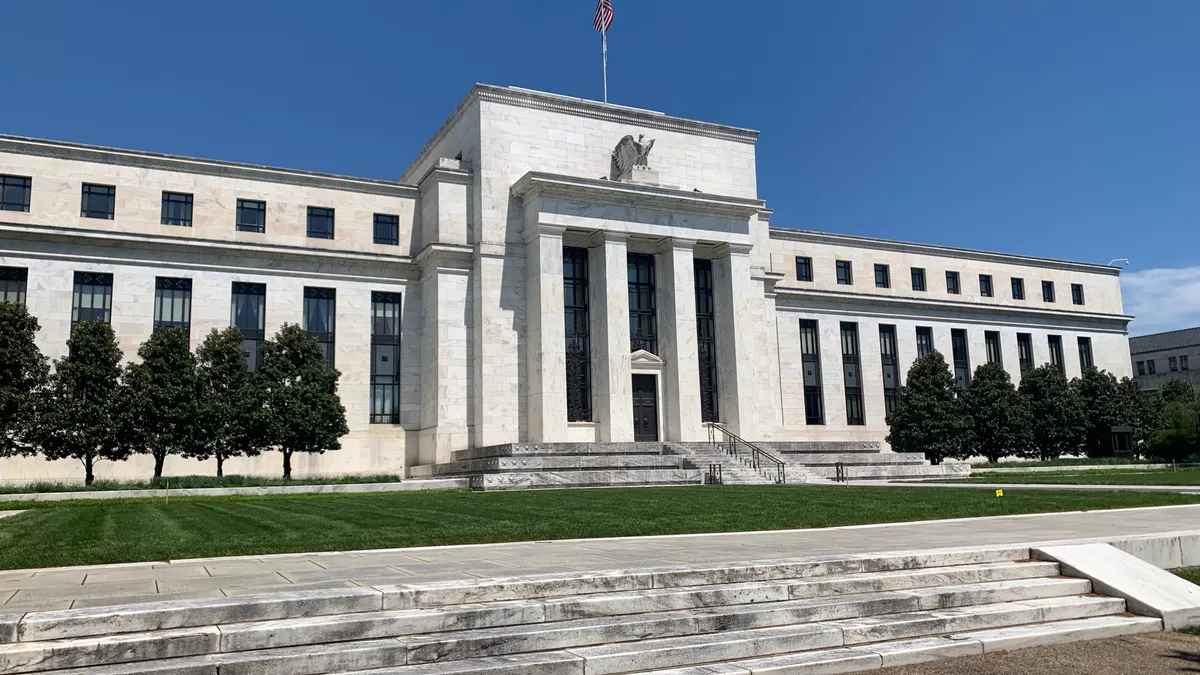Banks could face less disruption from climate change in the future with more preparation now, Federal Reserve Gov. Lael Brainard said Thursday at an Institute of International Finance event.
"Financial institutions that do not put in place frameworks to measure, monitor and manage climate-related risks could face outsized losses on climate-sensitive assets caused by environmental shifts, by a disorderly transition to a low-carbon economy, or by a combination of both," Brainard said in prepared remarks. "Physical and transition risks could materialize as traditional financial risks to supervised institutions, including through increased credit, market, operational, reputational, and liquidity risk."
She suggested banks undergo "scenario analysis," which she called an "exploratory exercise" that lets banks and regulators assess business model resilience against long-range sequences of events.
"It seeks to understand the effects of climate-related risks on a range of financial markets and institutions, as well as the potentially complex dynamics among them," she said, cautious to distinguish such exercises from full-on stress tests.
"By contrast, traditional stress tests are a regulatory exercise to assess the capital adequacy of banks to specific macroeconomic scenarios and financial market shocks over the short run," she said. "It will be important ... to consider how stress testing and scenario analysis may complement one another."
Brainard's speech came during a week in which a brutal weather system left hundreds of thousands in Texas without power, immersing much of the state in snow and sub-freezing temperatures. The cold snap prompted regional banks such as Comerica to close all 123 of its Texas branches and Regions to close most of its 99 locations, according to American Banker.
"The good news about all those locations being closed is that it removes some demand for electricity from the grid," said Bill Day, a spokesman for San Antonio-based Frost Bank, which closed all but seven of its locations statewide Wednesday.
"Almost every area that isn't affected by extended blackouts is at least subject to some rolling blackouts, so they're getting power for an hour at a time, but it's really unpredictable," Christopher Williston, president and CEO of the Independent Bankers Association of Texas, told the publication.
Brainard isn't the only Fed official to warn banks about adapting to climate risk, but she may have the highest profile.
Federal Reserve Bank of San Francisco President Mary Daly last week told The Wall Street Journal, "We need to take these climate risks seriously, look at how they're going to change the distribution of economic production, and then make sure that we have mitigation strategies in place."
To that end, Brainard said, the Fed's Supervision Climate Committee, which launched in January, will "work to develop an appropriate program to ensure the resilience of supervised firms to climate-related financial risks."
The formation of that panel is one of several steps the central bank has taken in recent months in an increased focus on the effects of climate change. The Fed announced in December it had joined the Network for Greening the Financial System, a group of more than 80 central banks and supervisors that share best practices to manage climate change's financial risks and aim to mobilize mainstream finance toward a sustainable economy.
The group in June threw its weight behind scenario analysis, saying it "offers a flexible 'what-if' methodological framework that is better suited to exploring the risks that could crystallise in different possible futures."
Brainard said some financial institutions are beginning to address climate risk by "responding to investors' demands for climate-friendly portfolios" but called for regulators to adapt further, suggesting they may need new supervisory tools that include longer time horizons.













